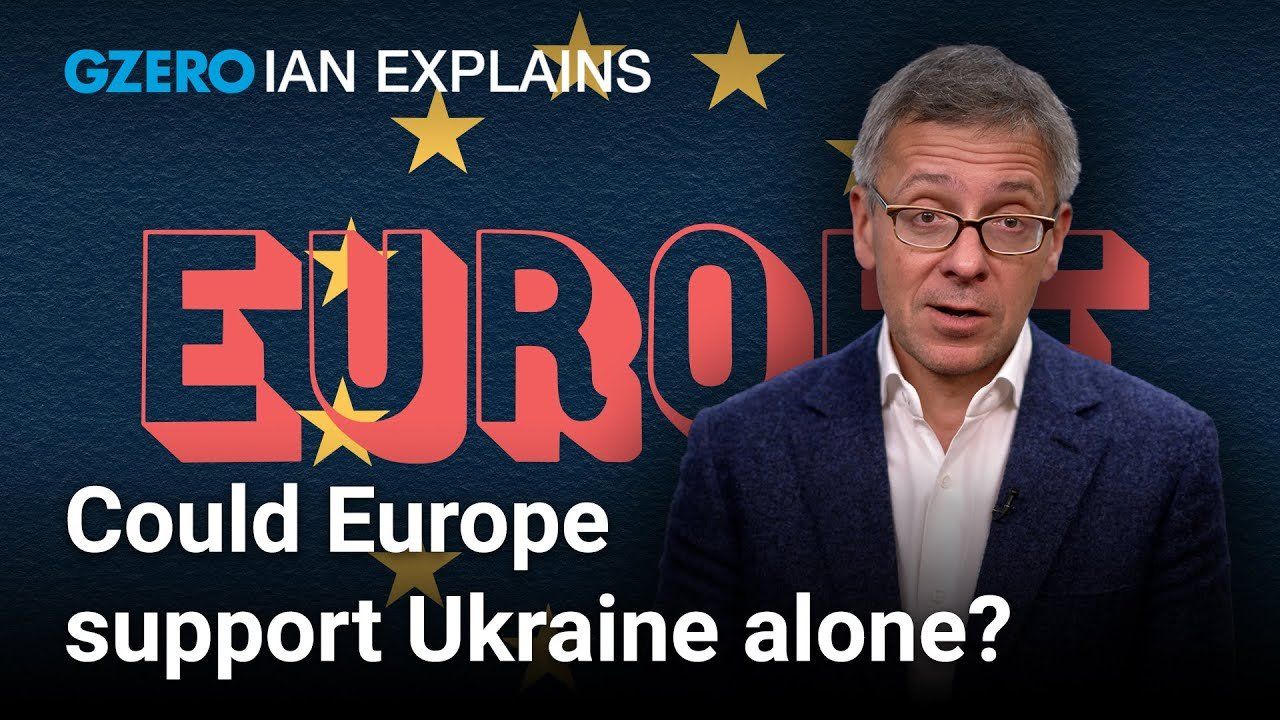Ian Explains
Ian Explains: If the US steps back from Ukraine, can Europe go it alone?

If the US steps back from Ukraine, can Europe go it alone? | Ian Bremmer Explains | GZERO World

Two years into Ukraine's all-out war with Russia, Europe has had to cut off nearly all energy imports from Moscow. Can Europe secure its energy future and defend itself without relying on Russia or, depending on the November election, the United States? Ian Bremmer explains on GZERO World.
Europe is facing a critical juncture in its energy and security landscape. When Russia invaded Ukraine, European leaders rallied for a united front. But in the ensuing two years, some of these intra-European ties have shown signs of fracturing. More concerningly, Europe is no longer confident it can rely on steadfast support across the Atlantic.
Depending on the outcome, the November election in the United States could signal a death knell for American support for Ukraine. With Trump's wavering commitment to NATO and Europe facing a future without Russian fossil fuels, the region is reevaluating its energy security and defense strategies. Europe remains vulnerable despite recent price drops and increased renewable energy capacity. The continent's post-pandemic recovery, climate change-induced weather extremes, and Putin's aggression have highlighted the urgent need for energy independence.
To put it bluntly, Ukraine needs Europe now more than ever, and Europe needs to ensure it is strong enough to provide the support Kyiv relies on. No amount of weaponry shipped to Ukraine's battlefields will matter if Europe can't keep its own homes lit or its factories running
Ian Bremmer sits down with former US Ambassador to NATO Ivo Daalder to unpack a historic shift in the transatlantic alliance: Europe is preparing to defend itself without its American safety net.
Think you know what's going on around the world? Here's your chance to prove it.
Argentina, Armenia, Belarus, Egypt, Indonesia, Jordan, Pakistan, Paraguay, Vietnam – to name only a few.
A poster featuring Andrew Mountbatten-Windsor, formerly known as Prince Andrew, is installed on a sign leading to the parking area of the Sandringham Estate in Wolferton, as pressure builds on him to give evidence after the U.S. Justice Department released more records tied to the late financier and convicted sex offender Jeffrey Epstein, in Norfolk, Britain, February 5, 2026.
British police arrested former Prince Andrew Mountbatten-Windsor today over allegations that in 2010, when he was a UK trade envoy, he shared confidential government documents with convicted sex offender Jeffrey Epstein.